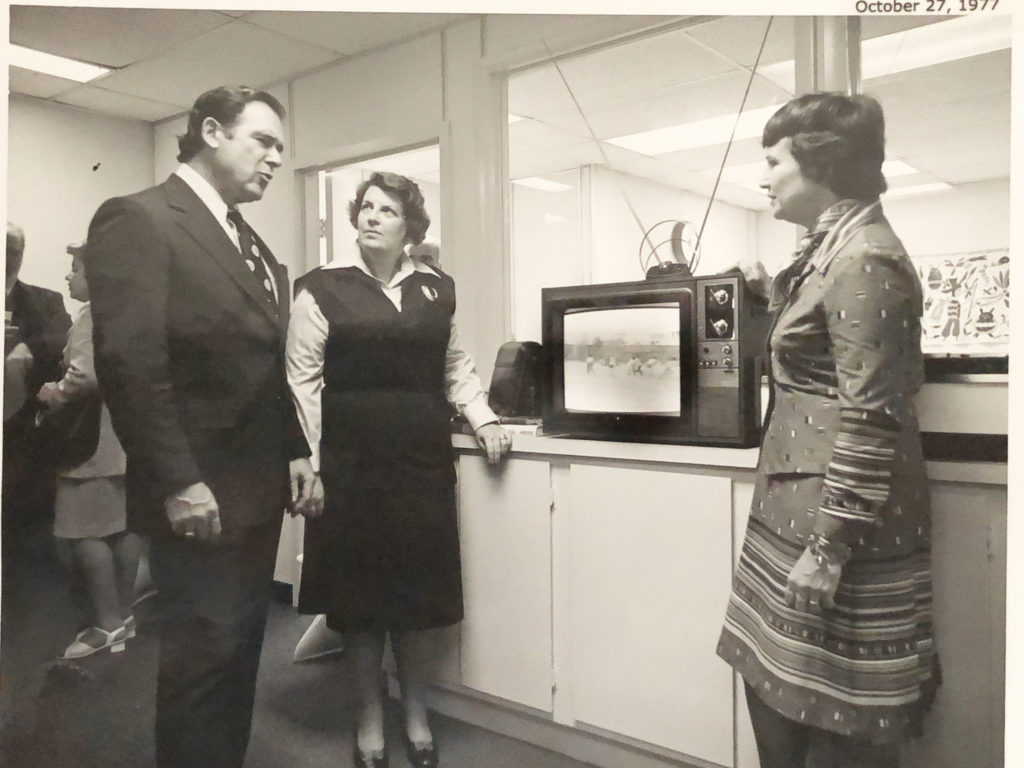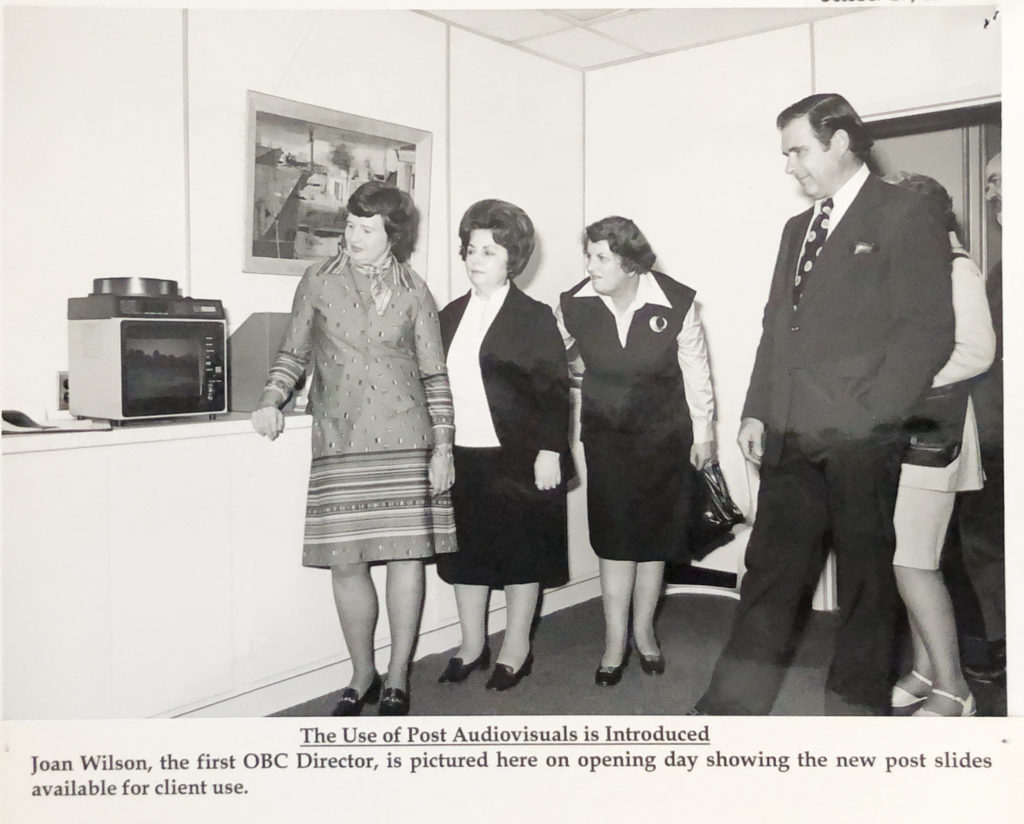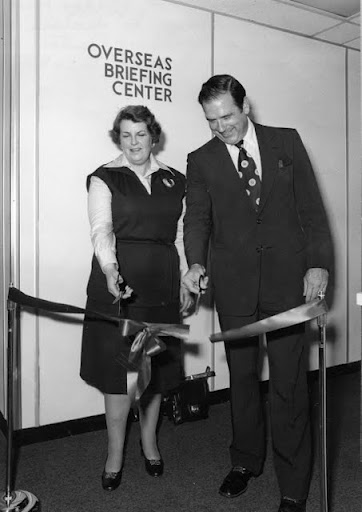Today, we all know what a vital role the OBC plays in the life of the Foreign Service community. Its training programs are extremely varied, and the in-depth information it provides, especially about overseas posts, is invaluable. From the beginning, the center offered videotapes, slides, post reports, welcome kits, school yearbooks, wives’ club publications, current Embassy bulletins, and other materials selected to answer questions on housing, shopping, schools and recreation. The OBC formed the foundation of what is now The Transition Center at FSI.

The vision was that it [the OBC] would be available to the American public, not the casual tourist, but the American business family going abroad. Thanks to William Broderick, who was head of the School of Professional Studies, who was a wonderful leader and said, “Gee, that’s a good idea.
Joan Wilson interview by ADST, p. 21 of transcipt
Come up with a firm proposal and let’s see what I can do to help.” And to Larry Dutton who took over the Wives Seminar when it was transferred to Area Studies. And to Ambassador Ted Eliot in Afghanistan who was responsible for the very first videotape that was made for the Overseas Briefing Center. That was done by an AID photographer who was given free range to use his own creative ability to make a video tape of what life was like at the post for Americans stationed there. It was so well done, so useful, that when it was shown to Ambassadors going out to other missions they felt they had to do as well in order to serve their own staffs. As a result of that it began to snowball. If we didn’t get good videotapes we got carousels of slides showing what one wanted to see at the post. Now, today, that Center is a very useful depot of information.

